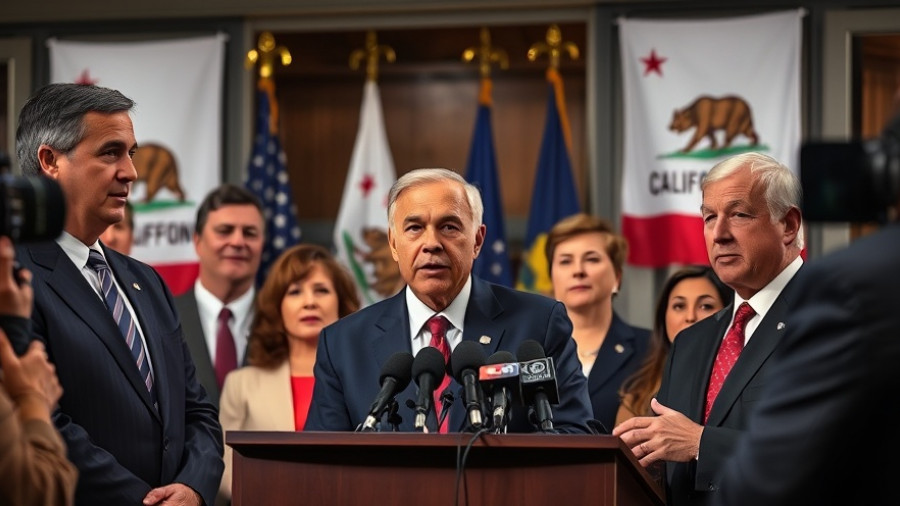
California's Bold Move: PFAS Veto Sparks Controversy
In a decision that has reverberated through communities across the state, California Governor Gavin Newsom vetoed a significant piece of legislation aimed at banning the notorious "forever chemicals" known as PFAS from common household items. This legislation, which was set to phase out PFAS materials in cookware, dental products, and various packaging, faced strong opposition from influential figures in the culinary world, including celebrity chefs who argued for the safety and utility of nonstick cookware.
The Stakes of Safety: What Are PFAS?
PFAS (per- and polyfluoroalkyl substances) are a group of man-made chemicals recognized for their resilience against heat, water, and oil. Frequently utilized in nonstick cookware, these chemicals have raised health concerns due to their potential links to serious health conditions, including cancer, reproductive issues, and endocrine disruption. Despite these risks, Newsom justified his veto by claiming that the ban would inflate costs for consumers, pledging to prioritize economic stability over immediate health concerns.
Community Reactions: A Divided Response
The veto has sparked a wave of discontent among health advocates and environmental groups, who argue that the governor’s decision compromises public health for corporate interests. Organizations like the Environmental Working Group have condemned the move, asserting that it leaves millions of Californians exposed to harmful chemicals at home. "This veto backtracks years of progress in consumer safety and undermines California’s leadership in environmental protection," said one advocate, emphasizing the need for proactive legislative measures against toxic exposure.
The Bigger Picture: What Does This Mean for Californians?
Beyond the immediate financial implications of increased cookware costs, public health advocates warn that this decision perpetuates a damaging cycle of exposure to PFAS. Lawrence H. from Oakland noted in a community forum, "Lower-income families are disproportionately affected by this decision, as they might not have the luxury of choosing safer alternatives that are often more expensive. The health of our families shouldn’t be sacrificed for corporate profit." This situation poses a critical question: how can California balance public health safety with economic considerations in policymaking? With neighboring states already implementing bans on PFAS, California’s continued reliance on these chemicals could have long-term repercussions not only for resident health but also for environmental integrity.
Empowerment Through Awareness: Changing Consumer Behavior
In light of Governor Newsom’s veto, consumers are encouraged to take individual steps towards safety in their homes. One effective way is by educating themselves about alternatives to PFAS-laden products. The market currently offers numerous non-toxic cookware options, which allow for safe cooking without the risk associated with PFAS. Empowered consumers can make choices that prioritize their health and contribute to a broader movement advocating for stronger regulations against harmful substances.
As the discourse surrounding PFAS continues, it is vital for communities—in particular those in the socially conscious San Francisco Bay Area—to engage in discussions that underscore the intersection of health, environment, and economic policies. Proactive community actions and advocacy can drive the legislative changes necessary to safeguard public health.
 Add Row
Add Row  Add
Add 



Write A Comment